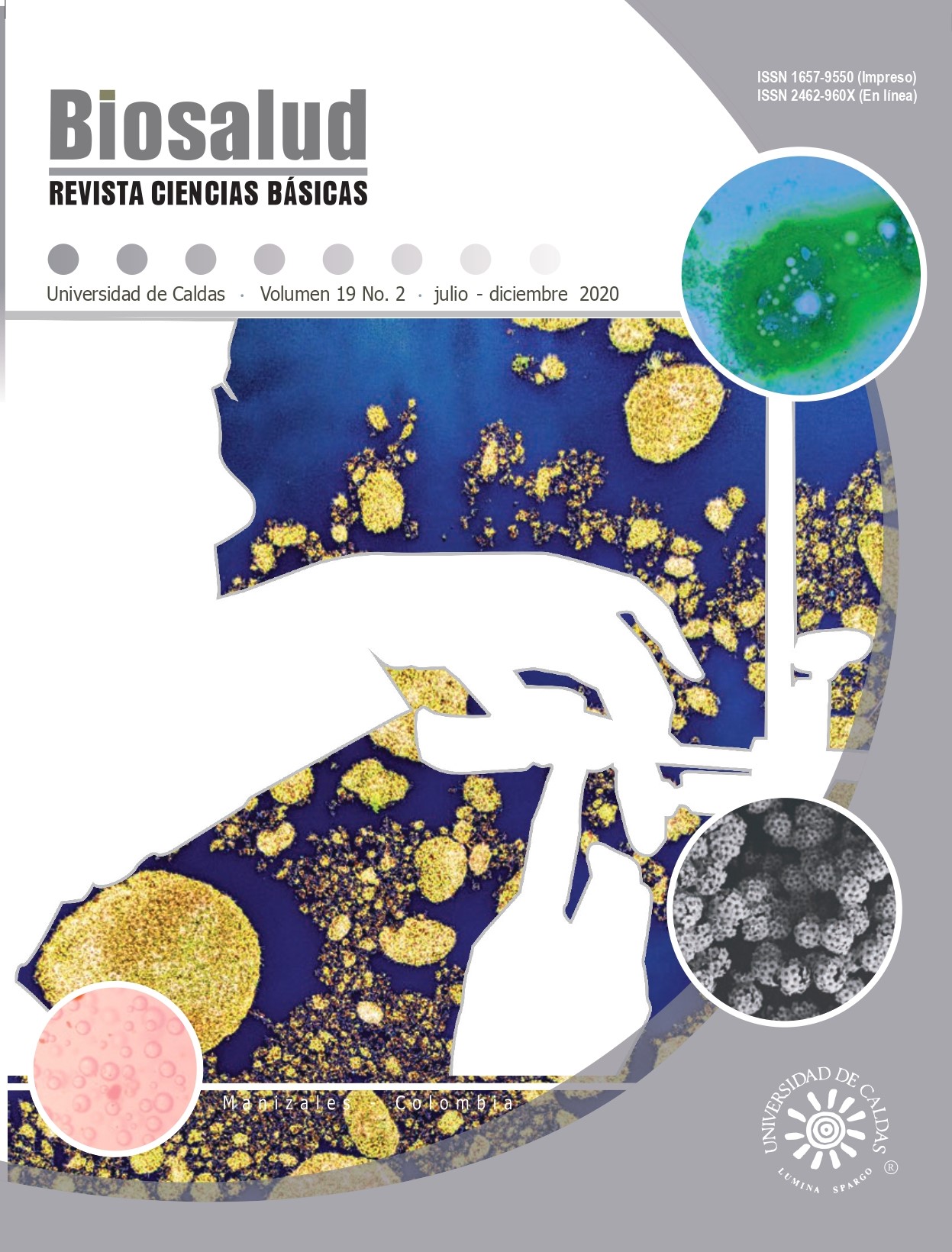Authors
Abstract
Commune two is located at the northeastern area of the city of Medellín. It is the most densely populated commune and the second poorest according to the quality-of-life index. It has various social, economic and political problems that influence the living and health conditions of its inhabitants, and which generate various difficulties in the family environment. In this territory, the CES University Primary Health Care (APS-CES) strategy was implemented as a university extension major project since 2018, focusing on Family and Community Health. Based on this implementation, it was decided to carry out a diagnostic approach in terms of structure, functionality, context of each family and describe the most common family configurations in the area. With these results, it is intended to provide quality information about the problems found, to provide feedback to the APS-CES strategy and to public and private institutions interested in the planning and local development of the community. The above was carried out through an exploratory cross-sectional observational study, for which a non-probabilistic convenience sampling was used, using medical records of the families that are part of the program (191 families and 603 individuals), in the period between 2018-2022. The results presented describe the main and most prevalent characteristics of the families of the commune and the most frequent problems that arise within them, in addition to their impact on family functionality. As well as offering recommendations for further studies.
References
2. Alcaldía de Medellín. (2022). Análisis de Situación de Salud con el Modelo de los Determinantes Sociales de Salud.
https://www.medellin.gov.co/irj/go/km/docs/pccdesign/medellin/Temas/Salud_0/IndicadoresEstadisticas/Shared20Content/ASIS/Archivos20descargables/Documento%20cero.pdf
3. Aziz, Y. A., Susanto, S. A. P., & Romadhon, Y. A. (2023). Correlation of APGAR family with mental health: An observational study in Indonesia. International Journal of Health Science and Technology, 5(1). https://doi.org/10.31101/ijhst.v5i1.2897
4. Beltrán-Cleves, M. V., Estrada-Montoya, J. H., & Durán-Torres, C. F. (2023). Recurso humano y distancia geográfica como barreras de acceso a los servicios de salud, Caquetá, Colombia, 2020: Análisis cuantitativo y desde la perspectiva de los actores del sistema de salud. Revista Médicas UIS, 36(3). https://doi.org/10.18273/revmed.v36n3-2023003
5. Bronfenbrenner, U. (1994). Ecological models of human development. Readings on the development of children. International Encyclopedia of Education, 3, 37-43.
6. Chunara, R., Gjonaj, J., Immaculate, E., Wanga, I., Alaro, J., Scott-Sheldon, L. A. J., Mangeni, J., Mwangi, A., Vedanthan, R., & Hogan, J. (2024). Social determinants of health: The need for data science methods and capacity. The Lancet Digital Health, 6(4), e235-e237. https://doi.org/10.1016/S2589-7500(24)00022-0
7. De La Guardia Gutiérrez, Mario Alberto, & Ruvalcaba Ledezma, Jesús Carlos. (2020). La salud y sus determinantes, promoción de la salud y educación sanitaria. Journal of Negative and No Positive Results, 5(1), 81-90. Epub 29 de junio de 2020.
https://dx.doi.org/10.19230/jonnpr.3215
8. Departamento Administrativo de Planeación Colombia. (2022). Comuna 2: Santa Cruz Ficha de Caracterizacón. https://www.medellin.gov.co/irj/go/km/docs/pccdesign/medellin/Temas/PlaneacionMunicipal/Publicaciones/Shared%20Content/Documentos/2021/Comuna%202%20Santa%20Cruz-Ficha%20Informativa.pdf
9. Franco Giraldo, A. D. J. (2020). Configuraciones, modelos de salud y enfoques basados en la Atención Primaria en Latinoamérica, siglo XXI. Una revisión narrativa. Gerencia y Políticas de Salud, 19. https://doi.org/10.11144/Javeriana.rgps19.cmse 10. Franco, M. C. V., Cardona Zapata, K., Moreno Realphe, S. P., Franco Patiño, M. C., & Castaño Parra, L. C. (s. f.). Estudio cualitativo a propósito de una experiencia de formación médica en Atención Primaria en Salud en una comuna de Medellín, Colombia. 2023, 13(2). https://doi.org/10.18270/rsb.v13i2.4451
11. Fundación Forjando Futuros (2019) Diagnóstico de violencias urbanas y su proceso de naturalización Comunas 2 y 7 Medellín. https://forjandofuturos.org/nuestras-publicaciones/#genero-y-derechos
12. Herrero Olarte, S., & Jaime Baena, J. (2022). Los Límites al Acceso a la Educación Superior dentro de la Comunidad Andina: Más allá de la Cuestión Económica. Revista Internacional de Educación para la Justicia Social, 11(1). https://doi.org/10.15366/riejs2022.11.1.012
13. Mackova, J., Dankulincova Veselska, Z., Filakovska Bobakova, D., Madarasova Geckova, A., Van Dijk, J. P., & Reijneveld, S. A. (2019). Crisis in the Family and Positive Youth Development: The Role of Family Functioning. International Journal of Environmental Research and Public Health, 16(10), 1678. https://doi.org/10.3390/ijerph16101678
14. Malpartida Ampudia, M. K. (2020). Familia: Enfoque y abordaje en la atención primaria. Revista Médica Sinergia, 5(9), e543. https://doi.org/10.31434/rms.v5i9.543
15. Ministerio de Salud y Protección Social. (2015, octubre). Programa Nacional de Salud Medicina Familiar y Comunitaria Dirección de Desarrollo del Talento Humano en Salud Grupo de Formación. https://www.minsalud.gov.co/sites/rid/Lists/BibliotecaDigital/RIDE/VS/TH/Programa%20Nacional%20
Salud%20Familiar%20y%20Comunitaria%20y%20Medicina%20Familiar%20200214.pdf
16. Ministerio de Salud y Protección Social. Resolución por la cual se modifica la Política de Atención Integral en Salud PAIS y se adopta el Modelo de Acción Integral Territorial-MAITE, Pub. L. No. 2626, 17 (2019). https://www.minsalud.gov.co/Normatividad_Nuevo/Resoluci%C3%B3n%20No.%202626%20de%202019.pdf
17. Secretaria de Salud y Protección Social de Antioquia (2022) ASIS Medellin2022V2. https://dssa.gov.co/images/2024/asis_2022/Analisis%20de%20Situacio%CC%81n%20en%20Salud%20-ASIS-%20Antioquia%202022.pdf
18. Shivalli, S., Majra, J. P., Akshaya, K. M., & Qadiri, G. J. (2015). Family Centered Approach in Primary Health Care: Experience from an Urban Area of Mangalore, India. The Scientific World Journal, 2015(1), 419192. https://doi.org/10.1155/2015/419192
19. Souza, Í. P. D., Bellato, R., Araújo, L. F. S. D., & Almeida, K. B. B. D. (2016). Genogram and ecomap as tools for understanding family care in chronic illness of the young. Texto & Contexto - Enfermagem, 25(4). https://doi.org/10.1590/0104-07072016001530015
20. Vélez, C., & Betancurth, D. P. (2015). Funcionalidad familiar y dimensiones afectivas en adolescentes escolarizados. Caldas-Colombia, 2013-2014. Revista Investigaciones Andina, 18(33), 1751-1766. https://doi.org/10.33132/01248146.658

 PDF (Español)
PDF (Español)
 FLIP
FLIP



















